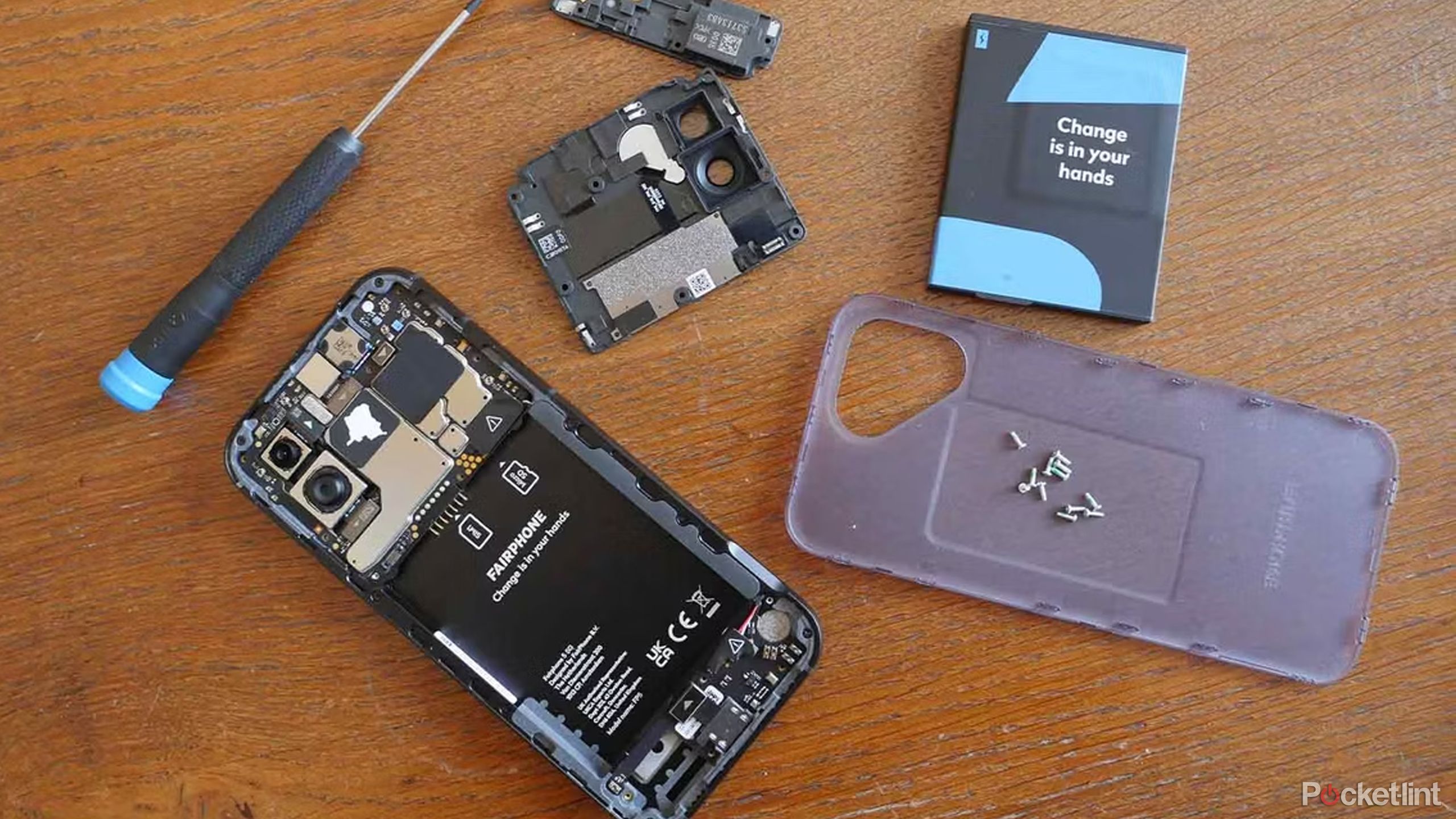Key Takeaways
- Samsung & iFixit split due to high part costs and lack of repair options.
- Brands like Samsung and Apple are embracing less repairable models.
- Consumers demand right-to-repair.
I’ve been working in the phone repair industry since 2012 and started my first business in the space in 2016. For as long as I’ve been turning screws and soldering boards, “right-to-repair” has played both the boogeyman and savior in the dreams and nightmares of repair industry entrepreneurs and workers. The movement gained momentum in the past few years after a series of lawsuits against the likes of John Deere, which fought to prevent farmers and ranchers from repairing their own equipment. It has since blossomed into an entire movement aiming to empower consumers with the ability to repair all their own devices, including their phones and tablets, with companies like iFixit leading the charge.
In what marks an unfortunate step backward for the movement, Samsung and parts company/repair activists iFixit are parting ways, ending their two-year partnership that aimed to improve consumer access to phone repairs and improve transparency on repairs for Samsung devices. In a statement written by Scott Head, iFixit’s operations and logistics supervisor, the company explained its reasoning for ending the partnership. Explaining his frustrations, he wrote, iFixit “consistently faced obstacles that made us doubt Samsung’s commitment to making repair more accessible. We couldn’t get parts to local repair shops at prices and quantities that made business sense. The part prices were so costly that many consumers opted to replace their devices rather than repair them. And the design of Samsung’s Galaxy devices remained frustratingly glued together, forcing us to sell batteries and screens in pre-glued bundles that increased the cost.”
For as long as I’ve been turning screws and soldering boards, “right-to-repair” has played both the boogeyman and savior in the dreams and nightmares of repair industry entrepreneurs and workers.
For Samsung’s latest devices, like the Galaxy S23, the company has not even made repair parts available to iFixit or to its customers. This lukewarm approach to the repairability of its devices proved disappointing and ultimately led to the dissolution of the partnership. “We’re proud of the work we’ve done together with iFixit. We can’t comment further on partnership details at this time,” Samsung said in a statement the company shared with The Verge.
Samsung is not alone in their approach.
Decreased repairability is sadly a growing trend.
I’ve been in this business since upgrading the RAM and hard drives on a MacBook Pro was so easy that I could walk friends through the process over the phone. Today, Apple makes laptops with soldered-on RAM chips and even soldered SSDs, all but ensuring that the specs you initially purchased will be the only specs you ever have. This frustrating lack of autonomy over a product that consumers spent their hard-earned money on, and should own and control outright, is an unfortunate trend years in the making.
Pocket-lint
A look at iFixit’s repairability scores over time paints a picture of a steep decline in end-user repairability and a more restrictive approach to repair. The early 2011 edition of the MacBook Pro received a 7 out of 10 score from iFixit. In its score summary, the company said the “easily removable bottom panel and readily accessible battery connector allow for easy repair of most components without touching the battery screws.” The only real downside iFixit noted was that “Tri-wing screws limit the average person from replacing their own battery.” Jump forward to the 2019 MacBook Pro, and you’ll find iFixit’s repairability score for Apple’s flagship laptop tanks to a 1 out of 10. Among a slew of issues, iFixit points out its biggest flaws, writing, “minor components are modular, but the processor, RAM, and flash memory are soldered to the logic board.”
Don’t cut off your nose to spite your face
A short-sighted approach seems unwise given the direction of consumer protections.
Giant corporations continue to dismissively wave away the right-to-repair movement in the hunt for short-term profits, but do so at their own peril. While the approach may improve their bottom line in the short term, eroding consumer confidence and trust in household names leaves brands open to losing market share. Companies like Fairphone aim to entice a new generation of smartphone buyers with their sustainable and ethical approach to manufacturing, and modular design for simple repairs that end users can easily perform on their own.
While the approach may improve their bottom line in the short term, eroding consumer confidence and trust in household names leaves brands open to losing market share.
As the likes of Apple and Samsung continue to lock down their devices, in a play for planned obsolescence, they may end up overplaying their hand. As consumers become wiser purchasers, and awareness of global implications like labor concerns and environmental impact grow, conglomerates will face increasing pressure to provide real access to repair and parts.

Fairphone’s new wireless earbuds take sustainability to the next level
Repairability and longevity are top of mind with these new earbuds.
Right-to-Repair is worth fighting for
The future of repair is unclear, but its place as a consumer right is clear
Companies like iFixit work hard to advocate for legislation that protects and expands consumer protections. Complacency is no longer an option, and as consumers, we should demand more when being told, “yeah, you have to bring it in” for the simplest of repairs on our laptops, phones, tablets, or tractors. Once a device, appliance, or piece of equipment is owned by an end user, it should, within reason, be simple enough to repair.
Half-hearted repair programs being spun up by enormous manufacturers in order to stave off legislation that at this point seems inevitable is ignorant at best, and disingenuous and manipulative at worst. The sooner these mega-cap companies wake up to this reality, the better off they will be. The hard work will continue until the right-to-repair is secured, consumers protections are put in place, and I can go back to walking my friends through replacing their laptop batteries over the phone.
Trending Products

Cooler Master MasterBox Q300L Micro-ATX Tower with Magnetic Design Dust Filter, Transparent Acrylic Side Panel…

ASUS TUF Gaming GT301 ZAKU II Edition ATX mid-Tower Compact case with Tempered Glass Side Panel, Honeycomb Front Panel…

ASUS TUF Gaming GT501 Mid-Tower Computer Case for up to EATX Motherboards with USB 3.0 Front Panel Cases GT501/GRY/WITH…

be quiet! Pure Base 500DX Black, Mid Tower ATX case, ARGB, 3 pre-installed Pure Wings 2, BGW37, tempered glass window

ASUS ROG Strix Helios GX601 White Edition RGB Mid-Tower Computer Case for ATX/EATX Motherboards with tempered glass…












